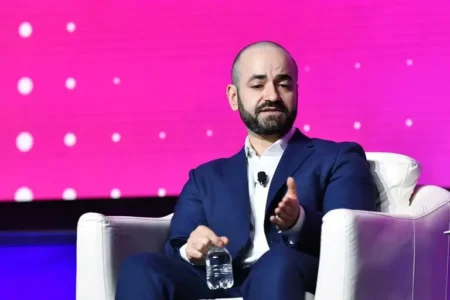The Senate on Wednesday took a hard position against the country’s deteriorating security, declaring abduction a type of terrorism and urging the death penalty for offenders, with no option for penalties or judicial discretion to lessen sentences.
The resolution came after hours of emotional debate sparked by the November 18 attack on Christ Apostolic Church in Eruku, Ekiti Local Government Area, Kwara State, in which gunmen killed two worshippers and abducted 38 others.
Although all of the victims were eventually rescued in combined operations by the army, police, DSS agents, and local vigilantes, MPs said the episode highlighted the frightening southward drift of insurgent groups and the breakdown of security in rural areas.
The decisions were based on a motion by Senator Yisa Ashiru (Kwara South) titled “Urgent Need to Address Escalating Insecurity in Kwara, Kebbi, and Niger States and Strengthen National Security Frameworks,” which sparked widespread concern about attacks on schools, worship centers, highways, and entire communities.
Senators stated that the frequency of school abductions has prompted the closure of all schools in local governments in Kebbi and Niger states, five LGAs in Kwara, and all 47 Federal Unity Colleges nationwide.
Senator Issa Jibrin (Kogi East) lamented the country’s acute manpower shortage in security services, saying that Nigeria’s whole military, police, and paramilitary troops “do not total one million,” as opposed to Egypt’s 1.5 million.
He advocated for immediate equipment upgrades, improved intelligence cooperation, and a reserve force to supplement overstretched forces.
Other senators expressed fear that banditry was advancing closer to Osun through Ekiti-linked communities near Eruku-Isapa-Koro, where a former army general and a traditional ruler were recently assassinated.
Lawmakers also blamed the attacks on substandard roads that allow criminals to easily flee, instructing the Federal Ministry of Works to immediately begin renovation of the Idofian-Omu-Aran-Eruku-Egbe-Kabba corridor.
In the face of escalating violence and ransom-driven networks, senators decided that abduction had grown into full-fledged terrorism and demanded the harshest punishment.
“Capital punishment must apply,” several lawmakers stated, emphasizing that no court should have the authority to modify the sentence of convicted kidnappers.
The Senate also encouraged President Bola Tinubu to “further rejig the nation’s security architecture,” prompting Senator Ali Ndume to caution that such language could be misinterpreted, considering the recent confirmation of military chiefs.
However, the chamber underlined that its desire was for improved coordination, technology, information, and speedy deployment.
In an unusual display of institutional self-criticism, the Senate dissolved its Committee on National Security and Intelligence and its Committee on the Air Force with immediate effect, directing all other security-related committees to submit written oversight reports and brief the chamber behind closed doors within one week.
Lawmakers also attempted to bolster registered vigilante organizations with federal support and ordered a study of the gun law to allow responsible citizens to be armed.
Wednesday’s choices came after a tumultuous session in which senators openly clashed over the growing wave of kidnappings and mass attacks across multiple states.
Earlier, Senator Asiru Yisa (Kwara South) moved a separate motion commending President Tinubu and security agencies for rescuing dozens of people kidnapped in Kwara and Niger.
The motion also proposed the formation of a Joint Task Force for the Kwara-Kogi corridor, a notorious escape route for robbers.
The debate heated up when parliamentarians highlighted the abduction of pupils in Kebbi, widespread kidnappings in Niger, and the Eruku church attack.
Ashiru informed colleagues that the chamber was “deeply disturbed” by the raid on the CAC church and expressed worries about credible allegations that soldiers departed from the Kebbi school hours before the robbers struck.
Deputy Senate President Barau Jibrin suggested that Nigeria must extend its search for solutions.
“We should seek assistance from overseas, urging collaboration with global partners to stem the crisis,” he said.
Senate Leader Opeyemi Bamidele termed the current dangers as defining.
While praising the rescue of victims, he questioned why security agencies did not provide a breakdown of terrorists neutralized.
He also cautioned colleagues against grandstanding and advocated for internal reform.
“If we are calling on the President to rejig the security architecture, we must also look into our own arrangement. I am not impressed with our Committee on Security and Intelligence. We should rejig it ourselves,” he stated.
Senator Enyinnaya Abaribe resisted attempts to blame prior administrations, urging that the current government take responsibility.
He highlighted allegations of army withdrawals prior to the Kebbi school attack, stating, “Who asked them?” Nobody knows. “If I were Commander-in-Chief, I would demand answers.”
Senate President Godswill Akpabio expressed concerns about intelligence compromises, citing situations in which the whereabouts of a brigadier general killed in Borno were purportedly revealed.
He expressed concern that bandits could still strike despite warnings issued to schools in Kebbi.
Senator Seriake Dickson complained that Nigeria was “losing prestige and integrity,” accusing the ruling caucus of exaggerating the concerns.
The comment sparked uproar from APC senators, prompting Akpabio to mute his microphone.
Senator Adams Oshiomhole later rose to defend President Tinubu and called for a probe into the army departure.
“Who ordered the military to withdraw? That person should be tried for terrorism,” he said—a call the Senate adopted. He also questioned sentencing inconsistencies in terrorism cases before renewing the push for the death penalty for kidnappers.









